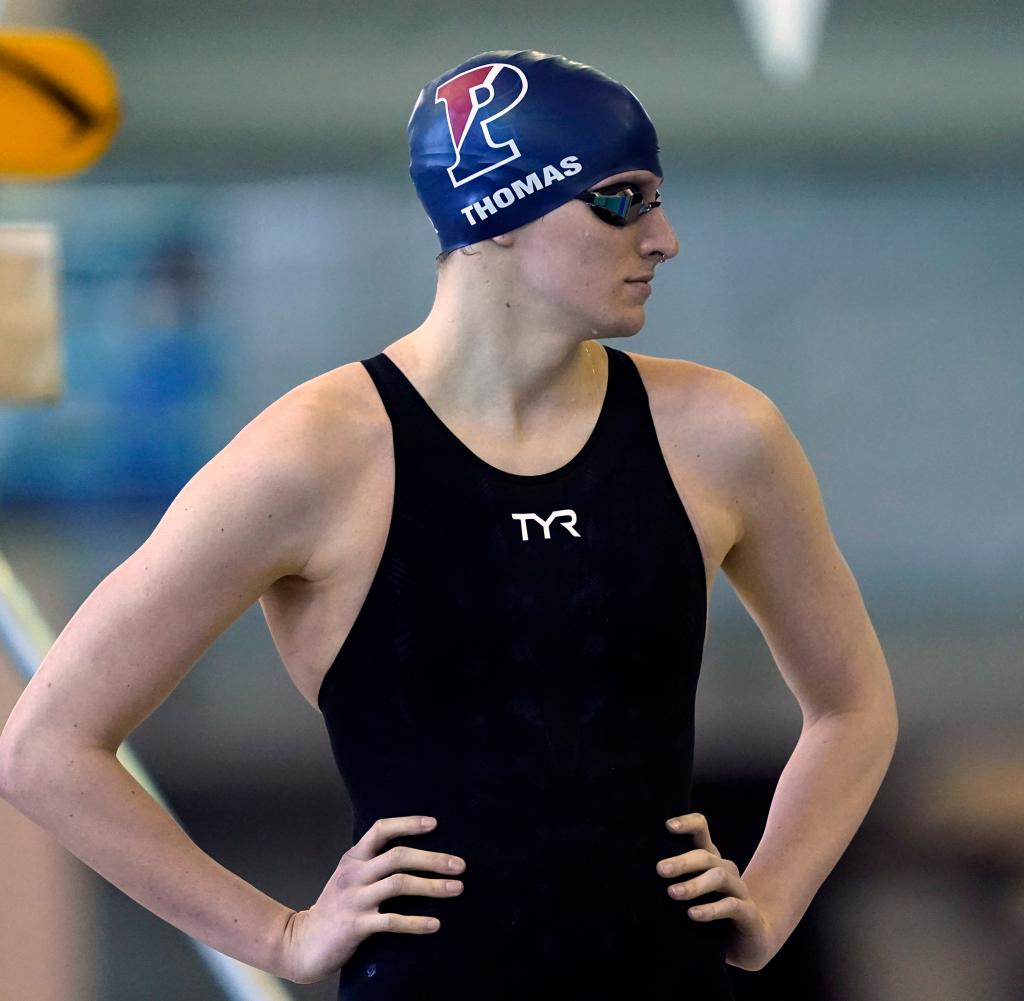Transgender swimmer Lia Thomas’s lawsuit before the International Court of Arbitration for Sport (CAS) failed. The American wanted to have the World Aquatics regulations for trans swimmers, according to which they cannot take part in elite women’s competitions, declared invalid. The judges decided that she was not entitled to bring the case and rejected Thomas’ application. The ruling comes a few days before the Olympic tickets for Paris are awarded at the US trials.
Last year, the umbrella organization excluded transgender swimmers from women’s races at major events such as the Olympic Games and World Championships. Exceptions are only permitted if the gender reassignment was completed before the age of twelve. At the same time, however, World Aquatics committed itself to creating a so-called “open category” for all swimmers and was the first major sports association in the world to implement this. However, there were no entries for this offer at the World Cup in Berlin last autumn.
Thomas had asked the sports court in Switzerland to overturn the rules, which she described as invalid, unlawful and discriminatory. In a statement issued by her legal team, she described the CAS decision as “deeply disappointing”. “Blanket bans that exclude trans women from competition are discriminatory and deprive us of valuable sporting opportunities that are central to our identity.” Thomas said the decision should be seen as a call to action for trans women to “fight for our dignity and human rights”.
Thomas swam for the University of Pennsylvania and in the spring of 2022 became the first transgender swimmer to win an NCAA title – that is, in competitions outside the World Aquatics competition system, in which she was not registered. Her success sparked controversy.
The International Swimming Federation now argued before CAS that Thomas was not a member of USA Swimming when the legal dispute began. In addition, she had not participated in women’s competitions “for the purpose of qualifying or selecting” for World Aquatics competitions such as the Olympic Games or World Championships.
The court ruling now states: “The panel concludes that it does not have the authority to challenge the policy and operational requirements in the present proceedings.” In January, the ruling states, USA Swimming granted Thomas’ request for “self-identification verification.” The judges declared that USA Swimming does not have the authority to change the world association’s rules.
World Aquatics welcomed the Cas decision in a case that “we believe represents a major step forward in our efforts to protect women’s sport.” It added: “World Aquatics is committed to fostering an environment that promotes fairness, respect and equal opportunities for athletes of all genders and we reaffirm that commitment,” the Lausanne-based governing body said in a statement.
Athlete Ally founder and CEO Hudson Taylor, however, called it a “sad day for sport and for all who believe that trans athletes should have the opportunity to have their experiences of discrimination heard and judged like everyone else.”
Sarah Kate Ellis, President and CEO of Gay
Other elite Olympic sports, such as athletics and cycling, have followed swimming’s policy on transgender athletes, excluding from women’s competitions those who have gained potentially permanent physical advantages through male puberty. The International Cycling Federation noted last year: “It also cannot be ruled out that biomechanical factors, such as the shape and arrangement of the bones in the limbs, may provide a permanent advantage for transgender female athletes.”




